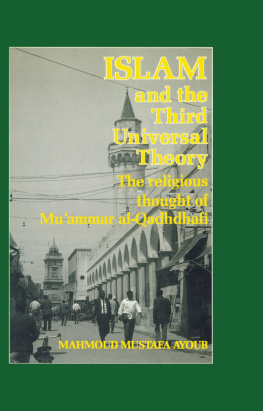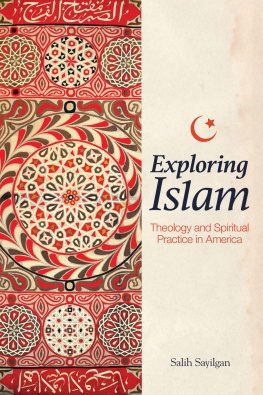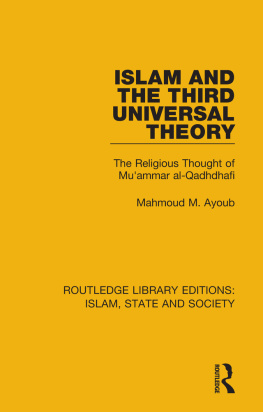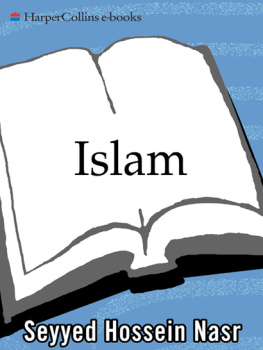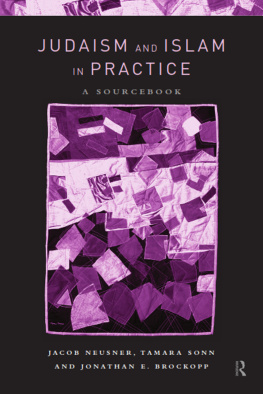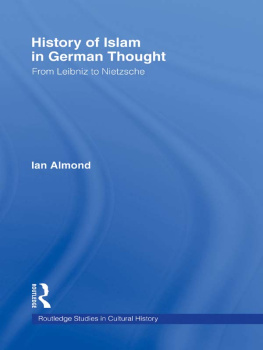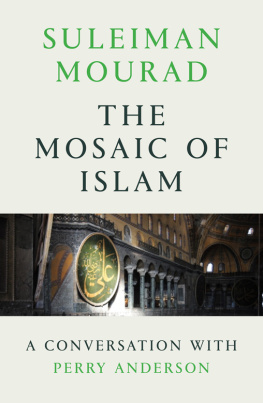Mahmoud Ayoub - Islam: Faith and History
Here you can read online Mahmoud Ayoub - Islam: Faith and History full text of the book (entire story) in english for free. Download pdf and epub, get meaning, cover and reviews about this ebook. year: 2005, publisher: Oneworld Publications, genre: History. Description of the work, (preface) as well as reviews are available. Best literature library LitArk.com created for fans of good reading and offers a wide selection of genres:
Romance novel
Science fiction
Adventure
Detective
Science
History
Home and family
Prose
Art
Politics
Computer
Non-fiction
Religion
Business
Children
Humor
Choose a favorite category and find really read worthwhile books. Enjoy immersion in the world of imagination, feel the emotions of the characters or learn something new for yourself, make an fascinating discovery.

- Book:Islam: Faith and History
- Author:
- Publisher:Oneworld Publications
- Genre:
- Year:2005
- Rating:4 / 5
- Favourites:Add to favourites
- Your mark:
- 80
- 1
- 2
- 3
- 4
- 5
Islam: Faith and History: summary, description and annotation
We offer to read an annotation, description, summary or preface (depends on what the author of the book "Islam: Faith and History" wrote himself). If you haven't found the necessary information about the book — write in the comments, we will try to find it.
Islam: Faith and History — read online for free the complete book (whole text) full work
Below is the text of the book, divided by pages. System saving the place of the last page read, allows you to conveniently read the book "Islam: Faith and History" online for free, without having to search again every time where you left off. Put a bookmark, and you can go to the page where you finished reading at any time.
Font size:
Interval:
Bookmark:
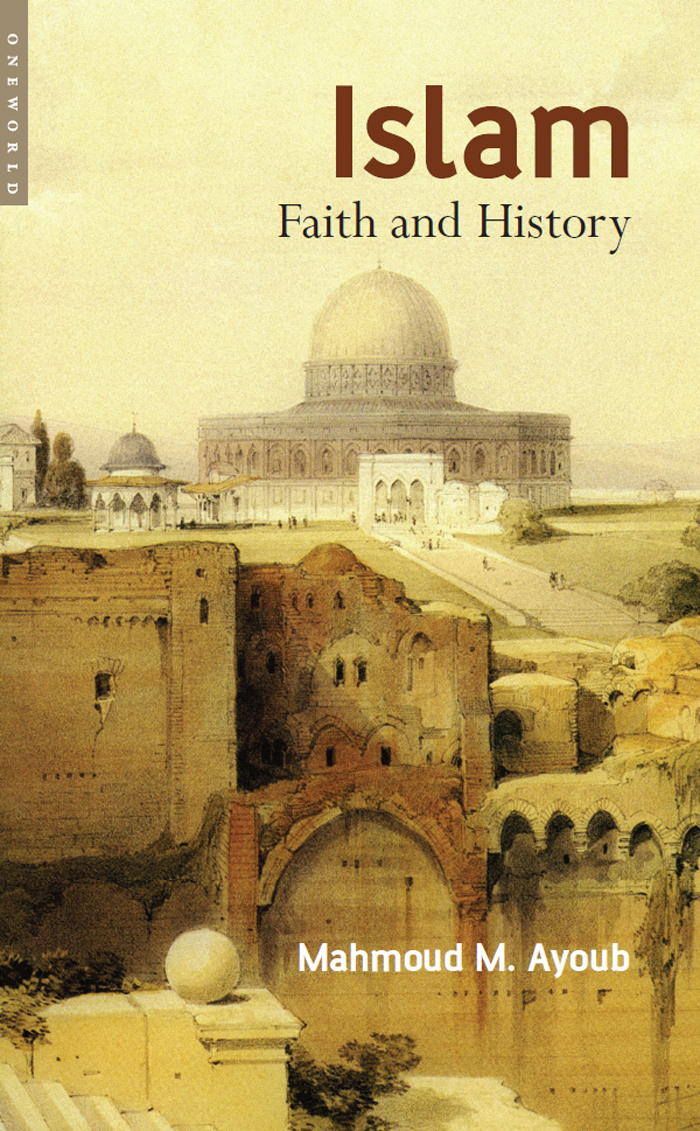
RELATED TITLES FROM ONEWORLD
Approaches to Islam in Religious Studies, edited by Richard C. Martin, ISBN 1851682686
The Crisis of Muslim History, Mahmoud M. Ayoub, ISBN 1851683267 Defenders of Reason in Islam, Richard C. Martin, Mark R. Woodward and Dwi S. Atmaja, ISBN 1851681477
Islam: A Short History, William Montgomery Watt, ISBN 1851682058
Islam: A Short Introduction Signs, Symbols and Values, Abdulkader Tayob, ISBN 1851681922
Islam and the West, Norman Daniel, ISBN 1851681299
The Legacy of ArabIslam in Africa, John Alembillah Azumah, ISBN 1851682732
The Mantle of the Prophet, Roy Mottahedeh, ISBN 1851682341
Muhammad: A Short Biography, Martin Forward, ISBN 1851681310
On Being a Muslim: Finding a Religious Path in the World Today, Farid Esack, ISBN 1851681469
The Quran: A Short Introduction, Farid Esack, ISBN 1851682317
Quran, Liberation and Pluralism, Farid Esack, ISBN 1851681213
Revival and Reform in Islam, Fazlur Rahman, edited and with an introduction by Ebrahim Moosa, ISBN 185168204X
Speaking in Gods Name: Islamic Law, Authority and Women, Khaled Abou El Fadl, ISBN 1851682627
What Muslims Believe, John Bowker, ISBN 1851681698

Our Lord, Grant Us in Our Spouses and
Our Offspring Comfort and Joy.
To Firas and Sumayya ... my comfort and joy.

ISLAM: FAITH AND HISTORY
Oneworld Publications
10 Bloomsbury Road
London WC1B 3SR
England
This ebook edition published in 2013
Mahmoud M. Ayoub 2004
Reprinted in 2012
All rights reserved.
Copyright under Berne Convention.
A CIP record for this title is available
from the British Library.
ISBN 9781851683505
eISBN 9781780744520
Typeset by Jayvee, India
Cover design by Design Deluxe
Stay up to date with the latest books,
special offers, and exclusive content from
Oneworld with our monthly newsletter
Sign up on our website
www.oneworld-publications.com
The last hundred years of Muslim history have been full of surprises, challenges and transformative events. They began with the hope of a pan-Islamic state that would restore to Islam its original power and glory. But the First World War, the consequent demise of the Ottoman state on which pan-Islamic hopes rested, and the abolition of the caliphate by Mustafa Kemal Ataturk ten years later, threw the Muslim world into confusion and despair. This sad state was aggravated by the colonization of most Muslim nations by Western powers, a situation that persisted beyond the end of the Second World War and was responsible for most of the intractable problems that continue to bedevil many Muslim countries today.
While the two world wars devastated and left Europe too exhausted to continue its domination of the world of Islam, the period of colonization had already burdened Europes former Muslim protectorates with insoluble problems in India, the Middle East and the Sudan, to name but a few examples. The West had reconstructed old countries, such as Syria, Arabia, and the Ottoman state, and created new ones, for instance some Gulf states, Pakistan, and a host of other Asian and African countries. At least officially, most, if not all of these countries adopted the Western nation-state model with its parliamentary democracy. This radical change, from a central Islamic state authority be it that of a sultan or a figurehead caliph to numerous nation states, fragmented the Muslim ummah into sometimes artificial and often mutually hostile states and forever altered the course of its history.
The Muslim nations reacted to Western incursions and influences in a variety of ways, both positive and negative. The creation of the Society of Muslim Brothers in Egypt in 1929, Jamat-i Islami in India and later Indonesia, and the Arab League in 1945, as well as other such religious and nationalistic organizations, were attempts to redress some of the effects of this fragmentation and its economic, political, and military consequences. The most important reaction to the state of powerlessness and disunity which characterized the Muslim world in the second half of the twentieth century was the Iranian Islamic revolution, which sparked a number of smaller but highly significant uprisings. This revolution is a unique phenomenon in modern Muslim history in that it brought to power a religious establishment that had always been in moral opposition to the temporal authorities. It was a revolution, moreover, inspired not by any Western model, such as communism, socialism, or capitalism, but by Islam. Thus, in spite of its Sh character, it in turn inspired the rise of a number of limited but effective revivalist movements in occupied Palestine, Egypt, Turkey, Algeria, Indonesia, and the Philippines.
Many Western and Muslim scholars have been trying to make sense of these events and developments and to place them in their proper historical perspectives. But events move so fast that many of these studies become outdated soon after, if not before, their appearance. The works of the late Fazlur Rahman and Seyyid Hossein Nasr are good examples of this laudable effort. However, the 1979 edition of Rahmans seminal book Islam, and final revision before his death in 1988, was made prior to the actual outbreak of the Islamic revolution in Iran. Likewise, while Dr. Nasrs latest introduction to Islam (2003) is clear and insightful, it is too brief and general to serve the need for a comprehensive book on the subject. Another scholar who deserves mention is Akbar Ahmad, whose sociological studies of Islam and contemporary Muslim society utilize post-modern theories and perspectives in examining many important issues. These are only a few examples of a large library of useful books that should be consulted. A good selection for further reading is presented at the end of this book.
In no way do I wish to minimize the importance of those excellent works of Western and non-Muslim Arab scholars that deal admirably with modern Muslim history, but I do feel that Muslims ought also to be engaged with their history and its problems and that the way in which they engage should reflect their special concern and commitments. This engagement, moreover, should give their works a special flavor and perspective. Of course, Muslim scholars must, and often do, strive for academic objectivity; still, they cannot divorce themselves from their faith and tradition. This should, however, make them even more critical than their sympathetic Western colleagues, whose appreciation for Islam and its civilization may make them more circumspect.
I have done my best in this book to balance my personal engagement in my faith and culture with objective academic integrity. I have also attempted to place the discussion of purely religious topics in their proper historical context. I begin in the prologue by presenting my personal religious experience as my own existential framework for the discussion of the faith and history of Islam.
The book is divided into eleven chapters. It begins with a discussion of the term
Font size:
Interval:
Bookmark:
Similar books «Islam: Faith and History»
Look at similar books to Islam: Faith and History. We have selected literature similar in name and meaning in the hope of providing readers with more options to find new, interesting, not yet read works.
Discussion, reviews of the book Islam: Faith and History and just readers' own opinions. Leave your comments, write what you think about the work, its meaning or the main characters. Specify what exactly you liked and what you didn't like, and why you think so.

